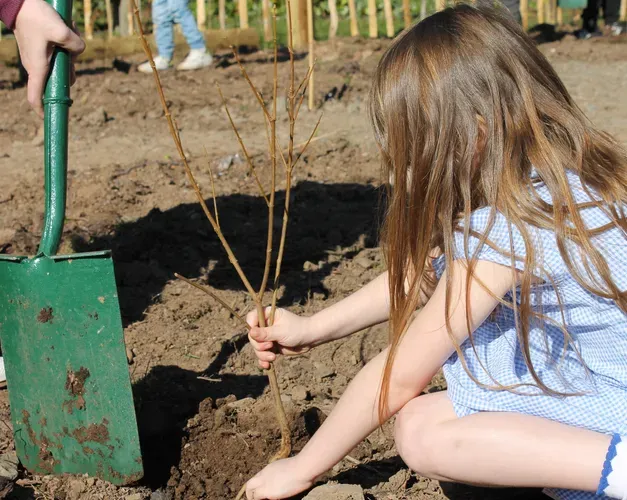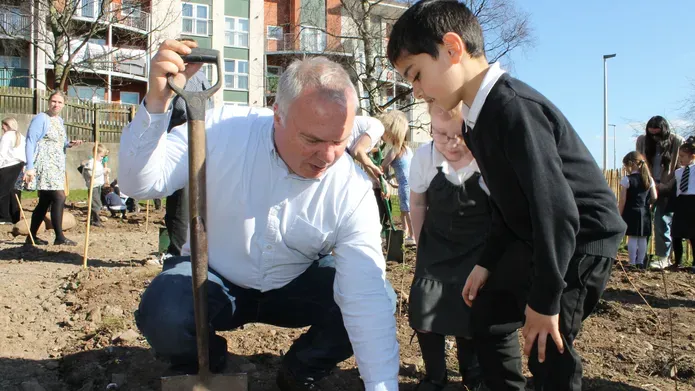Press release
Wee Forests to make a big impact on Dundee community
Big transformations to two small patches of Dundee are underway as local communities came together to plant hundreds of trees as part of a citizen science initiative
Published on 28 March 2022


More than 600 trees have been planted as part of the Wee Forest initiative, environments that, once established, have the potential to attract hundreds of animal and plant species to otherwise urban areas.
Dundee’s Wee Forests were planted at both Robertson Street and the Douglas Community Centre over 25-27 March by primary school children, their parents and the local communities. The initiative encourages schools and local people to take part in citizen science activities to raise awareness of climate change and the value of urban trees.
Led by Scottish Government agency NatureScot, and supported by the University of Dundee, the spaces, equivalent to the size of a tennis court, will be looked after by local youngsters, giving them hands-on experience of nurturing nature and learning more about how the natural world can help combat climate change.
Kevin Frediani, Curator of the University of Dundee’s Botanic Garden, said, “This is a hugely exciting initiative that has the potential to transform how youngsters interact with the natural world.
“Over time, youngsters will be involved in monitoring the butterflies that use the forests, calculating the amount of carbon captured and measuring the impact that trees have on slowing down the run-off from rainstorms.
“Wee Forests represent an act of hope, facilitating an opportunity to co-create near-by nature that benefits people and the planet for all our futures.”
Capable of attracting more than 500 animal and plant species within the first three years, the forests will be looked after by a volunteer Tree Keeper Team and Glebelands, Clepington and Claypotts Castle primary schools, as well as local Beavers, Cubs and Brownies groups.
As well as being a living science laboratory, the Wee Forests can incorporate outdoor classroom seating and provide a space for young people to learn about climate change and the value of urban trees.
Gary Jamieson, a teacher at Glebelands Primary School, said “It’s amazing to see how engaged the children are with this initiative, and it’s only just the beginning.
“This whole place will grow as the children grow and they will get so much out of it. We can link a lot of the curriculum to this area and once we design and build our outdoor classroom it can become part of their daily routine.”
Funding for the £500,000 project has been provided by the Scottish Government, and is further supported by Earthwatch Europe, with 20 more Wee Forests planned across Scotland.
Francesca Osowska, NatureScot Chief Executive, said, “These Wee Forests are not only a great way to help people connect with nature, but they’ll also help communities become more resilient to the impacts of climate change. We want to inspire the next generation to care for nature, and what better way to do this than to grow up alongside their very own forest.”